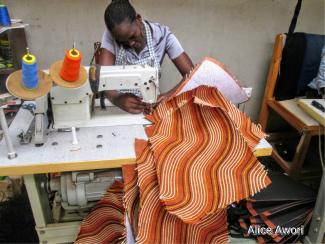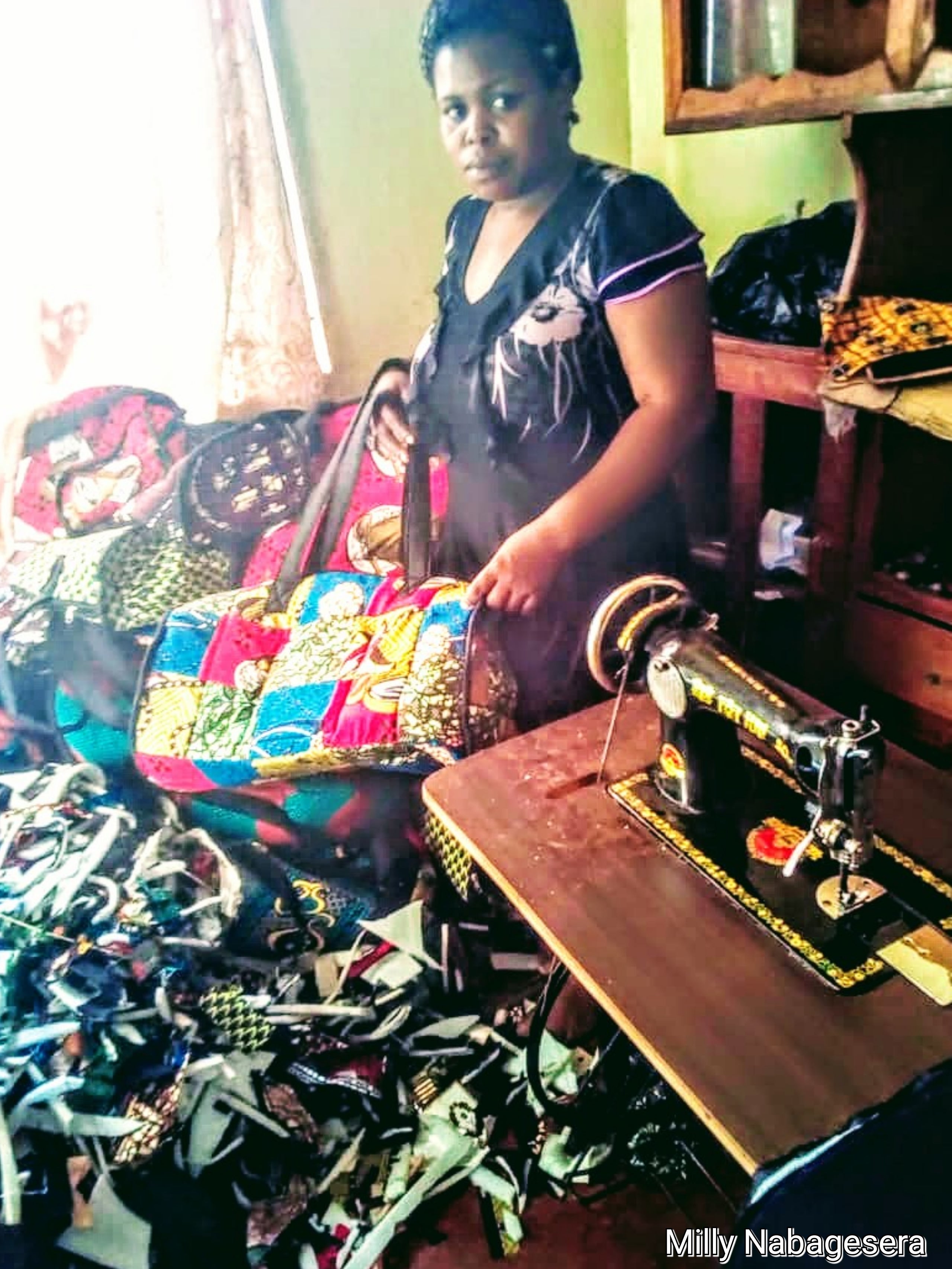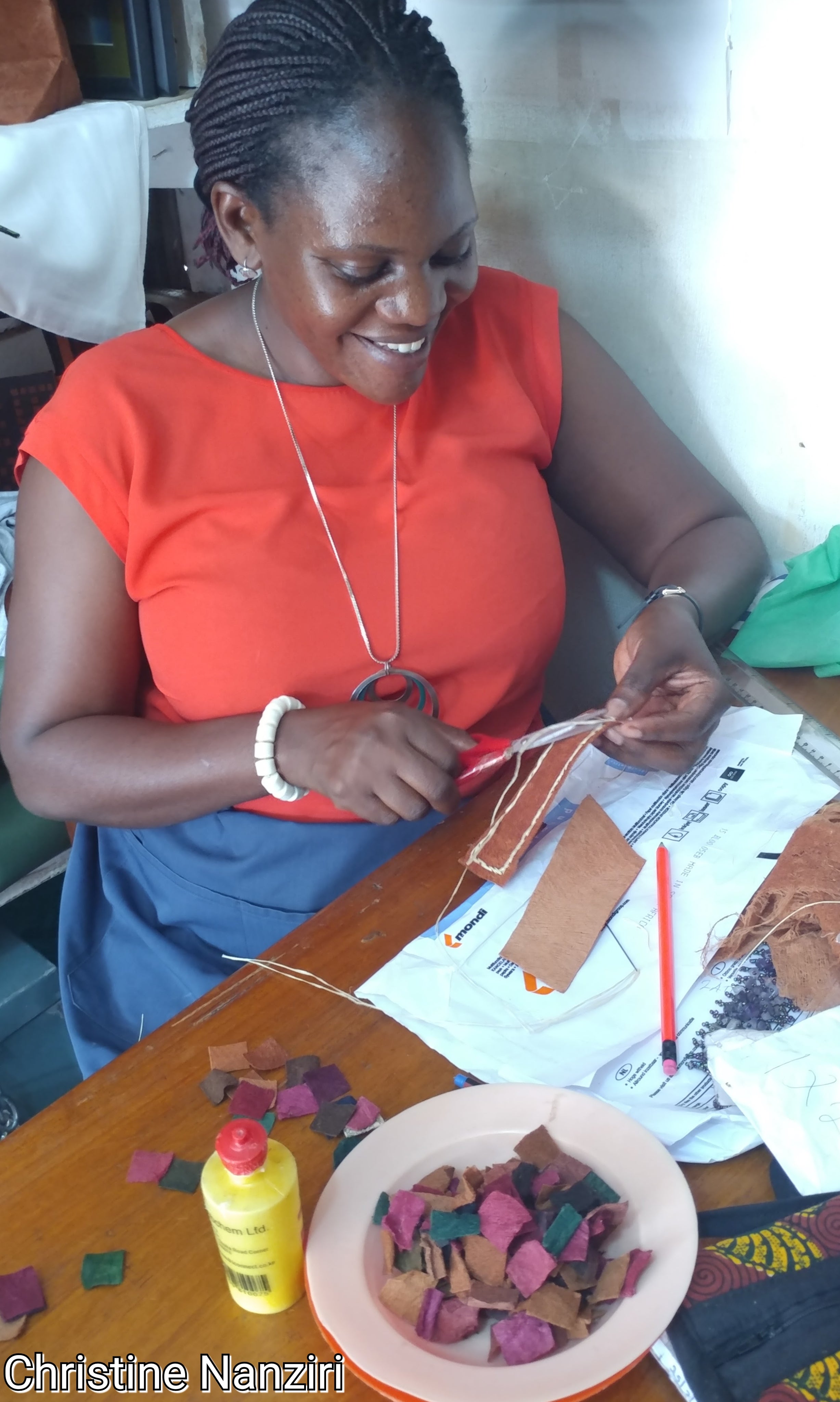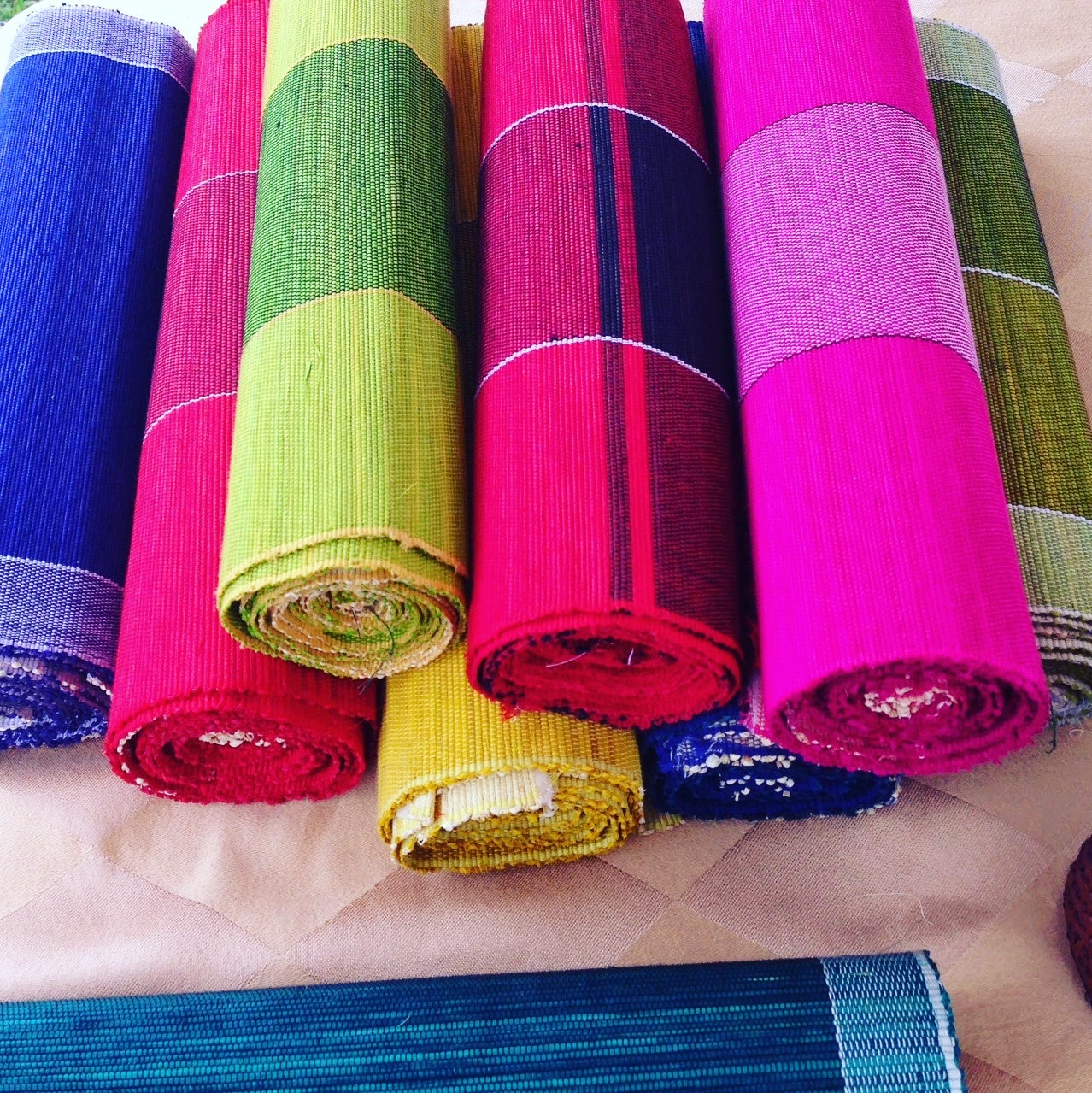
Afri-root Collective (ArC) is a social enterprise that empowers Ugandan women artisans who use sustainably harvested tree bark and other natural materials like raffia, banana bark, and jute in their work. ArC’s goal is to enable talented Ugandan women who experience social and economic hardship to become financially self-sufficient by providing training opportunities in handicraftmaking, and to find international markets for their products.
Among ArC’s 80 current members are Christine Nanziri, Alice Awori, Grace Birungi, and Milly Nabagesera, who are Baganda and Acholi. The women describe their processes: “I cut recycled papers in different shapes, use glue to make beadwork for necklaces,” says Nanziri. “I use screen printing and then hand stitch with raffia. Also I sew twisted raffia on barkcloth,” Awori says. “I use a wooden assembled mechanism to weave the raffia and viscose threads” comments Birungi. “I cut out different patterns and colors of African fabric and sew it jointly as patch work,” says Nabagesera.

ArC was founded by Ritah Nakandi in 2013 after she completed a masters degree in business management at Cambridge College in Cambridge, MA. Upon meeting with artisans in Uganda, she developed a passion for finding trade markets for their crafts internationally. ArC initially emerged as an online platform. “I was a member of the Uganda Women Entrepreneurship Association, an organization that supports women entrepreneurs.
One of our responsibilities was to travel to rural areas and train, mentor, and counsel women to start, sustain, and grow their businesses. I met women in urban and rural settings, and was intrigued by the creativity and hard work that each of these women instilled into running their businesses. The women who made hand crafted items had one major problem, which was limited market for their products,” Nakandi says.
Craft-making is a vital activity in Uganda, Kenya, Tanzania, and Rwanda, both culturally and economically, and many women rely on it for their livelihoods. Likewise, art is also relevant to the women’s cultures. “It gives me joy to see the creativity that I am passing on to my nieces and siblings,” says Nanziri, while Awori defines art as “a great medium of communication within ourselves as a community. It depicts my cultural history and brings back memories of activities of our great grandparents.” Nabagesera adds that art “has brought unity among the women. It instills a communal aspect that has always been present, but now we work as one family and we are happier.”
Gaining access to markets has had real impacts for the women. “I have managed to train others so that they can earn a living too,” says Nanziri. For Awori, greater access has meant “[widening] my production capacity and giving employment to women in my community.” Birungi adds, “I was able to acquire a bigger location for my production.” Most of the products made by ArC artists the Natal fig tree, native to Uganda and locally known as Mutuba.

Barkcloth is culturally important to Ugandans; it is used in burials and worn during coronations or cultural ceremonies, as well as being used as fabric for curtain or beddings. The production process for harvesting bark does not harm the environment and promotes tree bark regeneration.
Sustainability is ArC’s major goal, and to this end, the collective has planted 650 Natal fig trees on 3 acres in Uganda. The trees facilitate water retention in the soil while the leaves have medicinal properties, used for treating sore throats, whooping cough, influenza, and dysentery. Awori says that climate change is posing a new set of challenges for the collective members. She explains that “climate change affects barkcloth production, as barkcloth cannot be harvested in the rainy season.”

Afri-root Collective is committed to supporting the East African craft-making industry to promote cultural and environmental awareness, and to educate consumers about using their purchasing power more responsibly. As a socially responsible business, ArC supports its workers by reinvesting revenues to train them, expand their skill sets, and create positive working conditions so that they may become self-sufficient. ArC measures its social impact by providing increased employment opportunities for women who want to develop marketable skills. Cultural Survival Bazaars “are a platform for our artists to display some of their work,” says Nakandi.
All photos by Ritah Nakandi.
